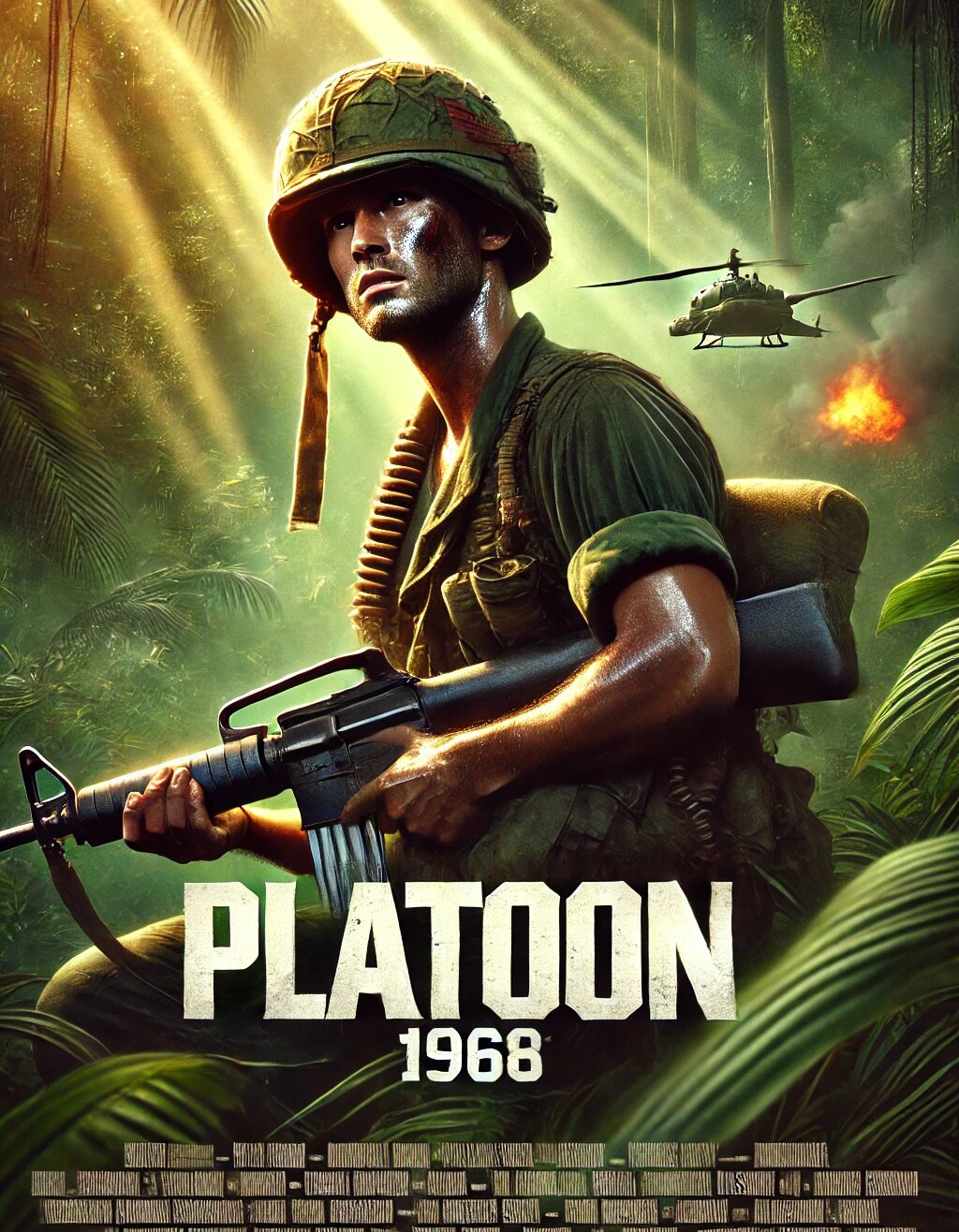𝙋𝙡𝙖𝙩𝙤𝙤𝙣 (𝟭𝟵𝟲𝟴)

Platoon (1986) – The Death of Sgt. Elias Scene (7/10) | Movieclips
Directed by Oliver Stone and released in 1986, Platoon is a powerful war drama that delivers an unflinching look at the horrors of the Vietnam War. Drawing from Stone’s own experiences as a soldier, the film provides a gritty, ground-level perspective on combat, morality, and the psychological toll of war. Widely regarded as one of the greatest war films ever made, Platoon won four Academy Awards, including Best Picture and Best Director.
Plot Overview
The story follows Chris Taylor (played by Charlie Sheen), a young, idealistic college dropout who volunteers for combat duty in Vietnam. Assigned to a platoon stationed near the Cambodian border, Taylor quickly finds himself in a brutal, dehumanizing environment. The film explores his journey from a naïve recruit to a hardened survivor, as he navigates the physical and moral challenges of war.
Within the platoon, a schism develops between two leaders: the compassionate and principled Sgt. Elias (Willem Dafoe) and the ruthless, authoritarian Sgt. Barnes (Tom Berenger). Their opposing philosophies about the war and leadership create a tense, volatile atmosphere that culminates in acts of violence and betrayal, both within the platoon and against the enemy.
Themes and Symbolism
Platoon is not just a war film; it’s a meditation on morality, humanity, and the loss of innocence. The conflict between Sgt. Elias and Sgt. Barnes symbolizes the broader ethical divide within the war itself, representing the moral struggles faced by soldiers in an ambiguous and often senseless conflict.
The film also examines the psychological toll of war, depicting how prolonged exposure to violence and trauma can erode one’s sense of right and wrong. Taylor’s transformation reflects the emotional and spiritual cost of survival, leaving viewers with a haunting impression of the Vietnam War’s impact on those who fought in it.
Realism and Legacy
Oliver Stone’s firsthand experience as a Vietnam veteran lends Platoon an authenticity that sets it apart from other war films. The movie doesn’t glamorize combat; instead, it focuses on the chaos, fear, and moral ambiguity of warfare. The harrowing depiction of battle scenes and the visceral sound design immerse the audience in the soldiers’ experience, making it both gripping and deeply unsettling.
Platoon is often credited with reshaping the war film genre, offering a raw and unfiltered portrayal of Vietnam that stood in stark contrast to the more sanitized depictions of earlier films. Its success paved the way for a wave of similarly introspective war movies, including Full Metal Jacket and Born on the Fourth of July.













